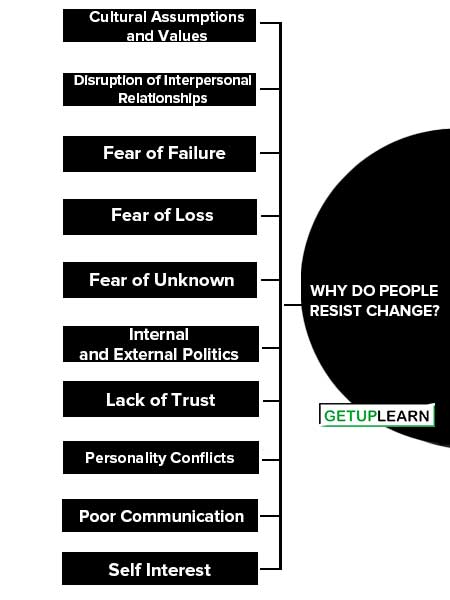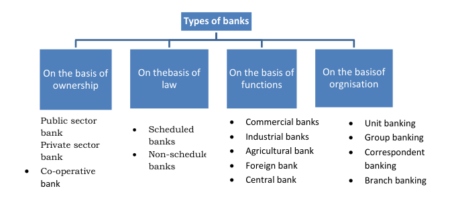Table of Contents
Why Do People Resist Change?
People resist change for a variety of reasons, which can be influenced by individual and organizational factors. Some of the common reasons include:
- Cultural Assumptions and Values
- Disruption of Interpersonal Relationships
- Fear of Failure
- Fear of Loss
- Fear of Unknown
- Internal and External Politics
- Lack of Trust
- Personality Conflicts
- Poor Communication
- Self Interest

Cultural Assumptions and Values
Sometimes cultural assumptions and values can be impediments to change, particularly if the assumptions underlying the change are alien to employees.
This form of resistance can be very difficult to overcome because some cultural assumptions are unconscious. Some cultures tend to avoid uncertainty may be met with great resistance.
Disruption of Interpersonal Relationships
Employees may resist change that threatens to limit meaningful interpersonal relationships on the job Librarians facing the automation effort described previously feared that once the computerized system was implemented.
They would not be able to interact as they did when they had to go to another floor of the library to get help finding a resource. In the new system, with the touch of a few buttons on the computer, they would get their information without consulting another librarian.
Fear of Failure
Some employees fear changes because they fear their own failure. Introducing computers into the workplace often arouses individuals’ self-doubts about their ability to interact with the computer. Resistance can also stem from a fear that the change itself will not really take place.
In one large library that was undergoing a major automation effort, employees had their doubts as to whether the vendor could really deliver the state-of-the-art system that was promised. In this case, the implementation never became a reality the employees’ fears were well-founded.
Fear of Loss
When a change is impending, some employees may fear losing their jobs, particularly when an advanced technology like robotics is introduced. Employees also may fear losing their status because of a change.
Computer systems experts, for example, may feel threatened when they feel their expertise is eroded by the installation of a more user–friendly networked information system.
Another common fear is that changes may diminish the positive qualities the individual enjoys in the job. Computerizing the customer service positions at Southwestern Bell, for example, threatened the autonomy that representatives previously enjoyed.
Fear of Unknown
Change often brings with it substantial uncertainty. Employees facing a technological change, such as the introduction of a new computer system, may resist the change simply because it introduces ambiguity into what was once a comfortable situation for them. This is especially a problem when there has been a lack of communication about the change.
Internal and External Politics
Organizational change may also shift the existing balance of power in the organization. Individuals or groups who hold power under the current arrangement may be threatened with losing these political advantages in the advent of change.
Lack of Trust
Trust plays a big role in running a successful organization. When organization members feel they cannot trust each other or key decision-makers, it becomes difficult for them to accept organizational changes. They may ascribe the changes to some negative underlying reason or even assume they will eventually lose their jobs.
Personality Conflicts
When the change agent’s personality engenders negative reactions, employees may resist the change. A change agent who appears insensitive, to employee concerns and feelings may meet considerable resistance because employees perceive that their needs are not being taken into account.
Poor Communication
Changes within an organization start with key decision-makers. It is up to them to pass along the details to team members and ensure all questions and complaints are handled before changes go into effect.
Unfortunately, as news of a change spreads through the hierarchy, details are sometimes skewed and members end up receiving inaccurate, second-hand information. Poor communication can therefore cause resistance to change.
Self Interest
Ego often interferes with the ability to adapt to change. Some want to maintain the status quo to better advance their own personal agendas; others have different motivations. In the end, employees acting in their own self-interest, instead of the organization’s greater good, will resist change.

